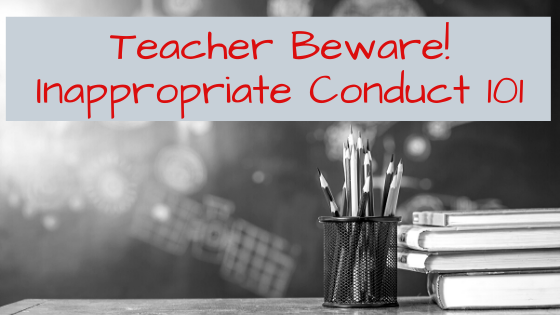The relationships between teachers and students are often very close, but sometimes they can cross the line and become inappropriate and illegal.
With the ease and intimacy that text messaging provides, teacher/student relationships can be become complicated, and even dangerous. Jan Olson, who has been handling sex crime cases in King County for decades, answers many common questions relative to the perils of electronic communications between educators and juveniles.
What guidelines should teachers follow when communicating electronically with their students?
Most schools today have protocols regarding electronic communication with children that should always be followed by staff. At a minimum, teachers should never, ever, use their personal email addresses, and they should never use their personal phones for texts to students. They use their school email addresses for communications with their students.
That being said, I’ve had clients who were teachers who got into long-term email discussions with students using their school email accounts, but then suddenly the communication goes from the school email address to the teacher’s personal email address, or the teacher starts texting the student. Teachers should never text individual students. Those sorts of communications are fraught with peril. They should not ever happen. That’s how a teacher gets into serious trouble particularly when they do it during off-hours. So fortunately, most schools have protocols about how teachers are to communicate with their students, and with other teachers.
Also, teachers should never just communicate with only the student. They should also communicate with the student’s parent or guardian. So, if a student sends their teacher a message like, “Mr. Olson, I need to know what I missed in class when I was out sick last week.” That teacher should include the parent or guardian in their response, not communicate just with the student. One-on-one communications can be too easily misinterpreted, or evolve into inappropriate communications.
What should a teacher do if a student begins sending inappropriate messages to them?
That is an excellent question because many times it is not the teacher who initiates the intimate conversations, but instead, it’s a student. Too many times, teachers think improper comments from their students are harmless if they do not reciprocate or if avoid the student outside of class. However, such messages can cause tremendous problems for the teacher, both professionally and personally, if it is not properly, and immediately, handled.
Again, schools today usually have formal protocols as how to deal with such situations, but, generally, speaking the teacher should immediately tell the student that their advances are not appropriate. They should also notify their supervisor of the incident so that it can be documented that the comments occurred and that the student was corrected. The school administration should then step in and take over the process.
How are teacher/student relationships investigated when it is suspected that an inappropriate relationship has occurred? How long can such investigations take to complete?
The quickest way that someone is going to be facing a criminal investigation is if they are literally caught in the act, or the minor starts to reevaluate the relationship and turns the teacher into their parent or guardian.
Outside of those situations, investigations usually don’t happen over night and often drag out for a long period of time. If a parent feels an investigation is necessary, they usually go to the school administration, but some go directly to the police instead. If an officer has to go and get a warrant to get the minor’s phone because the minor will not cooperate in turning over the phone, an investigation could take several months.
If in fact, and I’ve had these very things happen with teachers who started long-term relationships that didn’t result in any physical contact, but they engaged in provocative discussions over electronic communication, those investigations can go on for months because you could have a scenario where an officer may end up taking over the identity of the student in order to pose as the student.
If a teacher is setting up a possible meeting with a student who’s underage and the student’s parents alert law enforcement, officers will usually have the right to obtain the electronic communications of the minor child, or the officer will have to get a warrant saying that he has been alerted by the parents and will be able to get the minor’s phone. After that, they’ll have to go through a forensic analysis of all the electronic communication and that process could take a great deal of time. That information will most likely show not only the texts or the emails from the minor child, but also the responses from the teacher. Then the suspect, the teacher, is going to be facing the distinct possibility of an electronic crime. The most common example in the State of Washington is the electronic crime of communicating with the minor for immoral purposes. Again, those investigations can take several months, unless there’s some sort of a setup where a meeting is arranged for the teacher to meet with the minor and the police are there waiting for the teacher to show up.
Have you found that female educators get more leniency than male educators when being found guilty of inappropriate communications or contact with their students?
No. I think they both get treated equally punitively. I’ve seen parents profoundly, and appropriately, outraged with female and male teachers. They say to the teacher, “You wanted to keep my child after a class in order to help them with their homework after I believed that you were concerned about my child’s best interest, but instead it turns out the relationship had turned sexual?”
My personal experience in the State of Washington is there has been no harsher treatment for males than there have females using their positions as educators to develop inappropriate and illegal relationships with their students. It just seems to be more salacious for the media to focus upon female teachers accused of such behavior, but I haven’t seen female teachers getting treated less harshly. I frankly have not seen any gender bias either way.
Do you have further questions regarding teacher/student relationships? Consult with an attorney.
If you have a criminal matter and would like to consult with a lawyer, contact Jan Olson at Ellis, Li & McKinstry, PLLC.
You can reach Mr. Olson by calling (206) 682-0565 or by e-mail at: [email protected].

